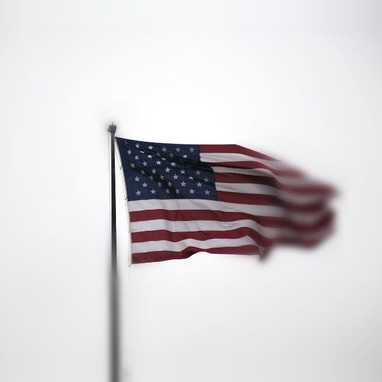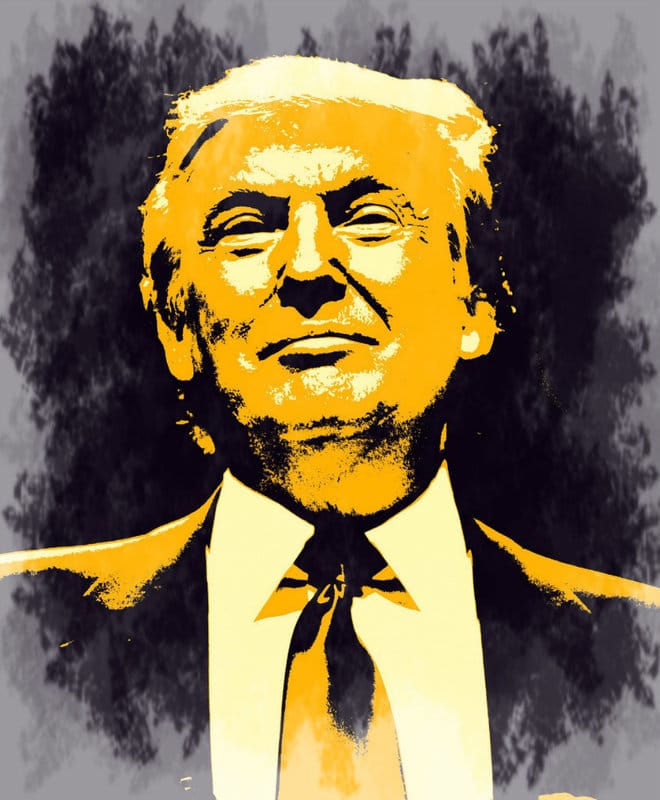by Ken Lohatepanont Grade 12 student at KIS International School
IT was a long night on November 8th in the United States. A race that many had predetermined the outcome could still not be called with many swing states being neck and neck. But the result could only be delayed for so long and it was a shocking result indeed. Donald Trump’s victory in the US presidential election was a stunning political upset. A celebrity billionaire turned populist, he energetically whipped the anger and fear of the American electorate and turned it into a movement that propelled him to the White House.
Symbolically, Donald Trump’s elevation to America’s highest office was not only a repudiation of the Washington political establishment but also a validation of a nationalist global revolt against elites, first foreshadowed this year by the UK’s decision to leave the European Union. Beyond catchy slogans and simplistic solutions, what does Trump, a man with no experience in the government, actually intend to do? What does President Trump mean for Thailand and the world?
This is difficult to answer. Trump is nothing if not inconsistent. He is, in his own words, “totally flexible on very, many issues”. But let us attempt to answer based on what we do know about the president-elect’s thinking.
IT was a long night on November 8th in the United States. A race that many had predetermined the outcome could still not be called with many swing states being neck and neck. But the result could only be delayed for so long and it was a shocking result indeed. Donald Trump’s victory in the US presidential election was a stunning political upset. A celebrity billionaire turned populist, he energetically whipped the anger and fear of the American electorate and turned it into a movement that propelled him to the White House.
Symbolically, Donald Trump’s elevation to America’s highest office was not only a repudiation of the Washington political establishment but also a validation of a nationalist global revolt against elites, first foreshadowed this year by the UK’s decision to leave the European Union. Beyond catchy slogans and simplistic solutions, what does Trump, a man with no experience in the government, actually intend to do? What does President Trump mean for Thailand and the world?
This is difficult to answer. Trump is nothing if not inconsistent. He is, in his own words, “totally flexible on very, many issues”. But let us attempt to answer based on what we do know about the president-elect’s thinking.
| America First It is important to begin by taking into account Trump’s core beliefs. “America First” was the core vision behind Trump’s candidacy, “Make America Great Again” his most memorable slogan. His single-minded pursuit of populist interests is nowhere illustrated more clearly than the increasingly likely demise of the Trans-Pacific Partnership (TPP), a trade agreement between numerous Asia Pacific countries. Trump, citing his concern for American workers and jobs, has vowed to signal his intent to pull the United States out of the TPP on his first day in office. Opposing free trade was always a message bound to resonate with a Rust Belt electorate feeling they had been left behind by globalisation, but Trump seems to have ignored US strategic imperatives to maintain leadership and commitment to economic cooperation in the Asia-Pacific region. While Thailand was not in the TPP, it will certainly be affected by Trump’s abandonment of Barack Obama’s pivot to Asia for his own views of America’s domestic interests. In addition, the fall of the TPP could benefit Thailand in that investors will be discouraged from investing in countries that would have joined the TPP, and may instead shift to Thailand. Trump also represents a key change in American economic policy; for the first time in decades, the United States will have a protectionist president rather than one committed to free trade. His protectionist leanings may impact Thailand in a number of ways. Earlier this year, Trump indicated he would be willing to impose a tariff as high as 45% on Chinese goods. Should Trump be so willing to impose barriers to trade to make goods from developing countries uncompetitive, then Thailand, where 10% of goods are exported to the US, has much to fear? In addition, some economists have predicted that Trump’s domestic economic policies, a blend of conservative tax cuts and Keynesian infrastructure spending, if actually seen through, could cause a recession in the United States. At a time when Thailand’s own growth is sluggish, it can hardly afford an international economic turmoil that will further diminish demand and investment. |

The world in flux
The Trump administration would also have a novel approach to foreign policy. Since the days of Woodrow Wilson, the US has always been committed to reshaping the world in their own image, one of liberal democracy and human rights. Trump, however, has espoused a more isolationist worldview. Nor does he demonstrate much care for the values the US have taken for granted; most notably, he has expressed unreserved admiration for dictatorial leaders across the world, in particular, Vladimir Putin.
Such acceptance of other authoritarian great powers like Russia and China signals possibilities in greater cooperation, and even concessions, from the US to these rising challenges as the world becomes increasingly multipolar. His indifference to military alliances, such as NATO, compounds this. In short, the post-Cold War world order could be turned on its head.
Trump also throws uncertainty into Thailand’s approach towards the United States. After the coup d’état of May 2014, US-Thai relations have grown relatively chilly, with the US repeatedly pressuring the Thai government to return to democratic elections as soon as possible. A Trump that is more openly accepting of different political systems may be less inclined to intervene in Thai political affairs and may allow the Thai government to win back favours from the US.
However, US disengagement from the Asia Pacific could also result in a diminishment of US influence in the region. Without a counterbalancing force to China in the Asia-Pacific, Thailand may very well actually end up being drawn even closer into the Chinese political orbit.
Uncertainty reigns supreme
Overall, however, with Trump yet to be inaugurated, these predictions are merely predictions. In the meantime, and possibly for a while beyond, uncertainty will reign supreme. After all, since becoming president-elect Donald Trump has already flip-flopped on many of his campaign promises. Trump’s particularly puzzling style of speaking only adds to the confusion coming out from his transition team. Such incoherence and inconsistency can only create unknown unknowns. How Thailand- and the rest of the world- will navigate these strange new times remain to be seen.
The Trump administration would also have a novel approach to foreign policy. Since the days of Woodrow Wilson, the US has always been committed to reshaping the world in their own image, one of liberal democracy and human rights. Trump, however, has espoused a more isolationist worldview. Nor does he demonstrate much care for the values the US have taken for granted; most notably, he has expressed unreserved admiration for dictatorial leaders across the world, in particular, Vladimir Putin.
Such acceptance of other authoritarian great powers like Russia and China signals possibilities in greater cooperation, and even concessions, from the US to these rising challenges as the world becomes increasingly multipolar. His indifference to military alliances, such as NATO, compounds this. In short, the post-Cold War world order could be turned on its head.
Trump also throws uncertainty into Thailand’s approach towards the United States. After the coup d’état of May 2014, US-Thai relations have grown relatively chilly, with the US repeatedly pressuring the Thai government to return to democratic elections as soon as possible. A Trump that is more openly accepting of different political systems may be less inclined to intervene in Thai political affairs and may allow the Thai government to win back favours from the US.
However, US disengagement from the Asia Pacific could also result in a diminishment of US influence in the region. Without a counterbalancing force to China in the Asia-Pacific, Thailand may very well actually end up being drawn even closer into the Chinese political orbit.
Uncertainty reigns supreme
Overall, however, with Trump yet to be inaugurated, these predictions are merely predictions. In the meantime, and possibly for a while beyond, uncertainty will reign supreme. After all, since becoming president-elect Donald Trump has already flip-flopped on many of his campaign promises. Trump’s particularly puzzling style of speaking only adds to the confusion coming out from his transition team. Such incoherence and inconsistency can only create unknown unknowns. How Thailand- and the rest of the world- will navigate these strange new times remain to be seen.




















